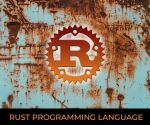“Zero Knowledge Proof is a powerful cryptographic tool that enables secure and private communication without revealing sensitive information, making it a crucial component of modern cryptography.”
Zero Knowledge Proof (ZKP) is a cryptographic technique used to prove the validity of a statement or claim without revealing any additional information beyond the validity of the claim itself. In other words, it is a way of demonstrating that you know a piece of information without actually revealing what that information is.
ZKP is based on the concept of interactive proof systems, where a prover and a verifier engage in a conversation or protocol that convinces the verifier of the validity of the claim. In a Zero Knowledge Proof, the prover convinces the verifier that they know a particular secret, without revealing what that secret is.
For example, a common use case of ZKP is in password authentication. Instead of transmitting the actual password over the network, the user can prove their identity to the system using a ZKP protocol, which demonstrates that they know the password without actually transmitting it.
ZKP has many applications in cryptography, including digital signatures, secure electronic voting, and privacy-preserving authentication. It is an important tool for protecting sensitive information and maintaining privacy in online transactions.
Types Of Zero Knowledge Proof
Zero-knowledge proofs (ZKPs) are cryptographic protocols that allow a prover to convince a verifier of the truth of a statement without revealing any additional information beyond the fact that the statement is true. There are several types of zero-knowledge proofs, including:
- Interactive Zero-Knowledge Proofs (iZKPs): These are ZKPs where the prover and verifier engage in a back-and-forth interaction, with the prover sending a series of messages to the verifier. Examples of iZKPs include Schnorr identification protocol, Fiat-Shamir heuristic, and the Guillou-Quisquater protocol.
- Non-Interactive Zero-Knowledge Proofs (NIZKPs): These are ZKPs where the prover sends a single message to the verifier, which the verifier can use to verify the truth of the statement. Examples of NIZKPs include the Goldwasser-Micali-Rackoff (GMR) proof, the Micali-Pfeiffer-Othersen (MPO) proof, and the Groth-Sahai (GS) proof.
- Succinct Non-Interactive Zero-Knowledge Proofs (SNARKs): These are a special type of NIZKPs that are highly efficient and allow for compact proofs. SNARKs have found applications in blockchain technology, where they are used to verify the correctness of computations in a trustless and decentralized way.
- Statistical Zero-Knowledge Proofs (SZKPs): These are ZKPs that provide a statistical guarantee of correctness, rather than an absolute guarantee. SZKPs are used in applications where the cost of a false positive is low, such as electronic voting and anonymous credential systems.
- Quantum Zero-Knowledge Proofs: These are ZKPs that use the principles of quantum mechanics to achieve an even stronger form of security. Quantum ZKPs are an active area of research and have the potential to enable new applications in areas such as secure communication and quantum computing.
Use Cases Of Zero Knowledge Proof
- Identity verification: ZKP can be used to verify a user’s identity without revealing sensitive information. For instance, a user can prove to a service provider that they are over 18 years old without revealing their exact birth date.
- Password authentication: ZKP can be used to authenticate a user’s password without revealing the password itself. This can be useful for online banking or other applications where sensitive information needs to be protected.
- Blockchain: ZKP can be used in blockchain technology to enable private transactions. ZKP can be used to demonstrate that a transaction is valid without revealing the details of the transaction or the identities of the sender and receiver.
- Secure communication: ZKP can be used to establish a shared secret key between two parties without revealing any information about the key to a third party. This can be used for secure communication between two parties.
- Cloud computing: ZKP can be used to verify that a computation has been performed correctly without revealing the inputs or outputs of the computation. This can be useful for cloud computing applications where the client wants to verify the correctness of the computation without revealing the data.
- Authentication protocols: ZKP can be used in authentication protocols to prove knowledge of a secret key without revealing the key itself. This can be useful for online banking, remote access, and other applications that require secure authentication.
Overall, ZKP is a powerful technique that can be used in a variety of applications to ensure security and privacy while still allowing for the validation of statements.
Final Thoughts
Zero Knowledge Proof (ZKP) is a cryptographic technique that allows a prover to prove the authenticity of a statement to a verifier without revealing any additional information beyond the validity of the statement itself. ZKP has a wide range of applications in various fields, including identity verification, blockchain, secure communication, cloud computing, and authentication protocols. ZKP is a powerful tool that can help ensure security and privacy in many different scenarios, and its applications are likely to expand as technology advances.
🅐🅚🅖
Interested in Management, Design or Technology Consulting, contact anil.kg.26@gmail.com
Get updates and news on our social channels!
LATEST POSTS
- A Tale Of Two Frameworks: Spring Boot vs. Django
 “Spring Boot’s convention over configuration approach simplifies development, allowing developers… Read more: A Tale Of Two Frameworks: Spring Boot vs. Django
“Spring Boot’s convention over configuration approach simplifies development, allowing developers… Read more: A Tale Of Two Frameworks: Spring Boot vs. Django - Unleashing The Power Of Django
 “Django, akin to a Swiss Army knife, provides a comprehensive… Read more: Unleashing The Power Of Django
“Django, akin to a Swiss Army knife, provides a comprehensive… Read more: Unleashing The Power Of Django - Potential of Progressive Web Apps (PWAs)
 “PWAs are not just about technology; they are about creating… Read more: Potential of Progressive Web Apps (PWAs)
“PWAs are not just about technology; they are about creating… Read more: Potential of Progressive Web Apps (PWAs) - Unleashing The Power Of Spring Framework
 “Spring Framework simplifies enterprise Java development, but it does so… Read more: Unleashing The Power Of Spring Framework
“Spring Framework simplifies enterprise Java development, but it does so… Read more: Unleashing The Power Of Spring Framework - Key Trends Of OSINT In 2024
 “The future of OSINT lies in our ability to adapt… Read more: Key Trends Of OSINT In 2024
“The future of OSINT lies in our ability to adapt… Read more: Key Trends Of OSINT In 2024 - Can Google’s Carbon Language Replace C++?
 “While Carbon may excel in performance-critical domains, it cannot replace… Read more: Can Google’s Carbon Language Replace C++?
“While Carbon may excel in performance-critical domains, it cannot replace… Read more: Can Google’s Carbon Language Replace C++? - Integration of Design Thinking, Lean, and Agile
 “Innovation thrives when Design Thinking, Lean, and Agile converge, creating… Read more: Integration of Design Thinking, Lean, and Agile
“Innovation thrives when Design Thinking, Lean, and Agile converge, creating… Read more: Integration of Design Thinking, Lean, and Agile - Benefits Of Infrastructure as Code (IaC)
 “Infrastructure as Code is the single most important thing you… Read more: Benefits Of Infrastructure as Code (IaC)
“Infrastructure as Code is the single most important thing you… Read more: Benefits Of Infrastructure as Code (IaC) - Power Of Internet of Everything (IoE)
 “The true power of the Intebrnet of Everything lies not… Read more: Power Of Internet of Everything (IoE)
“The true power of the Intebrnet of Everything lies not… Read more: Power Of Internet of Everything (IoE) - How Is The Enterprise IoT Evolving?
 “IoT is not just about connecting things; it’s about connecting… Read more: How Is The Enterprise IoT Evolving?
“IoT is not just about connecting things; it’s about connecting… Read more: How Is The Enterprise IoT Evolving? - IT Pricing Strategy And Models
 “The art of pricing lies in finding the perfect balance… Read more: IT Pricing Strategy And Models
“The art of pricing lies in finding the perfect balance… Read more: IT Pricing Strategy And Models - What Is SYCL (“sickle”)?
 “SYCL provides a powerful and intuitive programming model that simplifies… Read more: What Is SYCL (“sickle”)?
“SYCL provides a powerful and intuitive programming model that simplifies… Read more: What Is SYCL (“sickle”)? - What Is A Data Lakehouse?
 “With a data lakehouse, organizations can break down data silos,… Read more: What Is A Data Lakehouse?
“With a data lakehouse, organizations can break down data silos,… Read more: What Is A Data Lakehouse? - 5G – The Future Of The Internet
 “5G is the next big step in the evolution of… Read more: 5G – The Future Of The Internet
“5G is the next big step in the evolution of… Read more: 5G – The Future Of The Internet - Ransomware Groups Are Switching To Rust
 “Rust is to Ransomware what a lockpick is to a… Read more: Ransomware Groups Are Switching To Rust
“Rust is to Ransomware what a lockpick is to a… Read more: Ransomware Groups Are Switching To Rust - Streaming Data Pipelines
 “A streaming data pipeline is like a river: it flows… Read more: Streaming Data Pipelines
“A streaming data pipeline is like a river: it flows… Read more: Streaming Data Pipelines - Why Rust Is Best?
 “Rust is a systems programming language that runs blazingly fast,… Read more: Why Rust Is Best?
“Rust is a systems programming language that runs blazingly fast,… Read more: Why Rust Is Best? - Database Sharding Explained
 “Database sharding is like breaking a large puzzle into smaller,… Read more: Database Sharding Explained
“Database sharding is like breaking a large puzzle into smaller,… Read more: Database Sharding Explained - Ambient Computing Will Be The Future Tech
 “Ambient computing creates a seamless technology-rich environment, but challenges in… Read more: Ambient Computing Will Be The Future Tech
“Ambient computing creates a seamless technology-rich environment, but challenges in… Read more: Ambient Computing Will Be The Future Tech - Key Trends Of OSINT In 2023
 “OSINT is not just a technique, it’s a mindset. It’s… Read more: Key Trends Of OSINT In 2023
“OSINT is not just a technique, it’s a mindset. It’s… Read more: Key Trends Of OSINT In 2023

